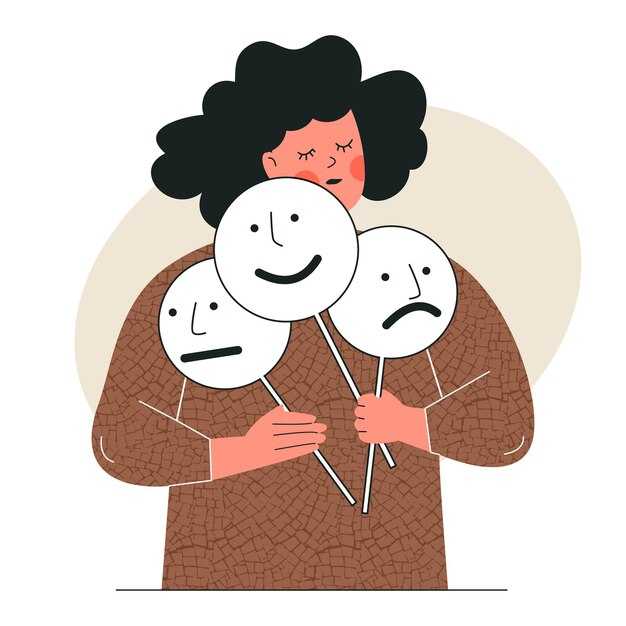Alright, let’s get into this. The silence. Days have passed — maybe weeks. You stop reaching out. They stop reaching back. Now you find yourself sitting in that void, that hollow space. It’s deafening, isn’t it? That quiet. It feels awkward. It feels confusing. Your mind races a thousand miles an hour, firing one question after another. Did I mess up? Have they already forgotten me? What are they thinking? What did I do wrong? Did I push too hard? Did I not try enough? This silence is no silence at all. It’s a battlefield inside your head. And I can see it. Don’t even try to hide it. I see it. I know you’re checking your phone. I know you’re seeing whether they viewed your story. I know you’re peeking at their last active status. I know you’re rereading old messages, hunting for clues, searching for the precise moment everything went sideways. I know you’re obsessed. You feel anxious. You feel like you’re losing your mind. And I’m here to tell you, looking straight at you: you’re not crazy. Let me be the first to say this today — what you’re feeling is very real. It’s a predictable biological reaction. You’re going through emotional withdrawal. Your brain is screaming for the connection it has come to rely on — even if that connection was messy and painful. Fine — call it what it is. This terrifies you. This hurts. And that’s okay. But you won’t stay stuck here, because I need you to listen. And I mean really listen. This agonizing, loud, pounding silence is not the end. It’s the beginning. It’s the start of the most important confrontation you’ll have in your life. Here’s the twist: it isn’t a showdown with them. It’s a showdown with yourself. You clicked on this clip wanting to know what they think. Understood. And don’t worry — I will pull back the curtain and explain what’s happening inside avoidant brains. We’ll go through all of that. But you’re here for a completely different reason. This moment isn’t about them. No — it’s about you. This is where you stop surrendering your power to other people. This is the moment you stop sitting by the phone, waiting for someone else to decide your worth. This silence right now is a gift. It’s an opportunity, and I’m going to spend the next 27 minutes teaching you exactly how to use it to reclaim your life. So stay. You owe it to yourself. Let’s get to work. First things first: we’re ripping the bandage off now. You need to get this. I mean, you have to sink this truth deep into your bones or you’ll never break free. Are you listening? Good. There is silence. It’s not about you. I’ll say it again so you can write it on your bathroom mirror: it’s not about you. It isn’t a measure of your value. It’s not a verdict on how loving you are. It’s not proof that you’re needy or not enough. It’s 100% about their fear. It traces back to programming from very early childhood. It’s about the massive emotional armor they’ve been building around themselves since they were little — a fifty-foot wall. You need to understand the avoidant operating system: its whole internal software runs on one main directive — protect the self at all costs. For their brains, intimacy is what they crave and what also reads as threat. Deep closeness doesn’t feel safe. It feels suffocating. It feels like entrapment. It feels like losing independence, identity, self. So every bit of connection you tried to cultivate — the messages, the “I miss you” texts, the “we need to talk about our feelings” — to you that’s love. To them, it feels like an assault on their fortress. It feels overwhelming. And their only defense, the only thing they’ve ever known, is to draw the drawbridge and create distance to dampen those feelings and get away. So when both of you finally stop communicating, when you stop knocking on that castle door, do you know what the first thing they feel is? I’ll tell you, and it will sting, but you need to hear it. The first thing they feel is relief. Yes. A huge, deep sigh of relief. Their immediate thought: finally, the pressure is off. No more demands. No more emotional conversations I don’t know how to have. No more feeling like I’m failing to meet needs. I am free. I’m back in control. And what do they do with that freedom? They plunge into distractions. They activate what we call their disruption strategies. They bury themselves in work, putting in long hours. They spend two hours at the gym. They binge a 20-episode show in a couple of nights. They reconnect with friends they haven’t seen in months. From the outside it looks like life is great. They convince themselves they’re fine. They feel satisfied. They feel for a while that things are manageable. But time goes by. A week, maybe two, maybe three. The silence — their preferred tool, the tactic they always use to keep you at arm’s length — starts to sound different. An echo returns. And their silence is no longer a weapon. It becomes your silence that returns to them. A new, annoying, persistent thought creeps in that they can’t quite shake: wait — why didn’t they text? They always text. Even when I go quiet, they come back to check. They always check in on me. Why aren’t they pursuing me? This is the first crack in their armor. It’s a tiny hairline fracture, but it matters, because it’s the moment they realize the truth — the truth you need to understand. Their sense of security was built on your insecurity. I’ll say it again: their ability to tolerate distance, independence, freedom came from knowing deep down that you would always be there. You would do the emotional labor for both of you. You were the one who texted first after fights. You were the one who closed the gap every time. You weren’t just a partner. You were their emotional safety net. And now you stepped off the net. The gap is wide open. For the first time in a long time, it’s them staring into the void, wondering where you went. The power dynamic is beginning to flip. And that whole fortress they built to keep people out suddenly feels less like protection and more like a prison. Your journey — it’s just getting started.
Okay, let’s talk about you now. In these first few weeks your path is completely different from theirs. You don’t feel relief. You feel pain. You register every second of this silence. It hurts — a physical tug in your chest. You were used to connection. You were used to patching things up, closing gaps, managing the flow of contact. Your brain was conditioned like a trained animal to seek them out and find safety there. In this moment your nervous system is screaming. It’s in hyper-vigilant panic mode. It’s signaling danger. The connection was cut off. Fix it. Fix it. Now, that is withdrawal. Let’s call it what it is. You’re not sick from love. You’re in withdrawal. You’re addicted to the highs and lows, to the push and pull, to hoping that this time you’ll finally get the connection you deserve. You fight those urges every minute, don’t you? The urge to text, to call, to post something knowing they’ll see it, the urge to do anything to break this unbearable tension. And here’s the hard truth you need to hear: stop checking your phone. I mean it. Stop. Stop refreshing your messages. Stop snooping on their social media. Stop looking to see whether they viewed your story. Every time you pick up your phone you’re telling your brain: my peace is in this device. My happiness is in their hands. My worth is decided by their reactions. You’re literally holding the remote control to your anxiety and hitting the panic button every five minutes. You are surrendering your power. You must be the one to break this cycle. Not them — you. So do this now, or as soon as this video ends. Put your phone on Do Not Disturb. Mute their name. Mute their stories. Better yet, leave your phone in another room for an hour. Go for a walk. Take a bath. Sit with your hands and do nothing. I know it sounds impossible. But you need to survive that first painful spike, the moment when your pain is a ten out of ten. You must prove to your nervous system that you will not die if they don’t text. Because that’s what’s happening when you cave in. After surviving that initial agony — after the first 24 hours — something shifts. Then, after a full week, something remarkable happens. The silence begins to change.
The loud, aching, disruptive silence starts to soften. The obsessive noise in your head begins to fade. One morning you wake up and realize: wait, I didn’t think about them for an hour. And then you notice something else: wow — I have so much energy. So much time. Suddenly you see, with brutal clarity, how much emotional energy you poured into a bottomless cup. The hours spent dissecting texts. The days ruined waiting for a reply. The mental gymnastics you performed to understand their feelings. That’s gone. And in its place, you find yourself. This is the beginning of detox. The silence stops feeling like punishment and becomes protection. It becomes your shield. Your fortress. The sacred space you build to finally heal. You begin to turn your attention to yourself — not the version you tried to be for them, but the real you. You go to the gym not to sculpt a revenge body but because you want to feel strong in your skin. You call the friend you ignored for six months because you were consumed. You don’t keep a diary about them; you write about your goals, your dreams, your boundaries. Piece by piece, minute by minute, you reclaim the parts of yourself you abandoned while you were busy managing their emotions. And that active shift changes everything, because when they return to their avoidant fortress, they’re in for a surprise they weren’t prepared for. Alright. You’re in your new space. You’re doing the work. You’re focused on yourself. The noise in your head is quieter. Peace is settling in. And here’s the interesting part: when they come back, they sense it. I’m not talking about magic. I’m talking about energy. They feel it without a single word exchanged. They can feel, strongly, that you are actually moving away this time. Your anxious energy is no longer sending them constant signals. Your chasing energy isn’t pounding on their door. Nothing. And remember the relief they felt? It’s gone. That curious nudge transforms. It becomes real worry. This lands on their deepest wound. They built that whole castle to protect themselves from the fear of being forgotten, from the terror of true abandonment. Here — this is the moment you need to grasp.
Their entire defense system, the “I don’t need anyone” persona, was founded on the assumption that you would always be there. You were the safety net. You were the one who
They will come back — that’s almost certain. They may have pushed you away because they expected you’d recover quickly. But this time you didn’t. The balance of power has completely shifted. They no longer decide the distance between you — you do. And that terrifies them. So what do they do?
What does this frightened, anxious person do next? Listen closely. Do they call sobbing, begging forgiveness and explaining their upbringing with flowers and a handwritten letter? No — that would be dangerous for them. That would be an admission: they need you, and their fortress would be breached. Instead, they test you. They do the smallest possible thing to check whether there’s still a hook in you. They dip a toe in the water to see if you’ll snap. The test looks like this: they watch your story, not casually but instantly, as if waiting. They “accidentally” like a post — not your latest, but one from weeks or months ago. They scroll. They send a tiny digital note: I’m here. I’ve been thinking about you. The classic three — and then they wait.
They might send a dumb low-effort meme, or a genuinely coy one, or a single-word text with an ellipsis. Or they might simply send it and sit back, heart racing, waiting to see if you’ll fall back into the old pattern. Burn this into your head: that “hi” accompanied by a silly cat video is not a comeback. It’s not proof they love you. It’s not a sudden realization of your worth. It is what it is — a power test. Their unconscious, panicked way of asking a single question.
They’re asking: are you still there? Do you still care about me? Is that door still open? Can I still steer your emotions from a safe distance? They don’t want to risk their heart; they want to know whether a hook remains. They want to see if you’ll act — if you’ll bite, gush, and say, “Oh my God, I missed you so much,” so they can breathe a sweet, calming sigh of relief and put their energy back in their pocket. But this time you won’t. You’re different now. You’re not pulling away as a tactic; you’re protecting yourself. You have clarity. Your response — or, more importantly, your lack of one — is what creates the biggest shift, and that shift is crucial.
Here’s the unexpected truth nobody tells you: the moment you genuinely stop reaching out — not as a game or a set of rules you read online, but as a real, non-negotiable act of self-respect — your absence becomes the loudest thing they’ve ever heard. Your silence stops being nothing; it becomes a mirror. For the first time, they can’t watch you chase them. They have to look at themselves. They’re confronted with the consequences of their behavior. They have to sit with the emotions they’ve been fleeing: loneliness, regret, emptiness. Their whole story was built on the assumption that you would do the chasing, that you were anxious and they were stable and independent. You remove that script, and everything falls apart.
Nothing unsettles an avoidant more than seeing the person they once relied on as an emotional safety net become utterly indifferent and at peace — not angry, not petty, but calm and healed. “I wish you well, but my life is over here now.” That indifference is the crisis for them. That’s where the power flips. So yes, inevitably, after weeks or even months they may reappear. And I don’t mean a lazy meme — I mean a real message: Hi, how are you? I’ve been thinking about you. I miss what we had. Three months ago your heart would have exploded at those words. You would have taken screenshots, sent them to friends, panicked about what to say. You would have hoped and schemed. But the new you — the healed you — will pick up the phone, see their name, and feel nothing.
You won’t get that rush of anxiety or anger. You’ll feel something steady and powerful: clarity. You’ll be able to see their patterns and their fear plainly. You’ll read that text for what it is — a test, an annoyance, not an opportunity. You’ll recognize they are trapped in the same cycle they were in months ago while you have moved into an entirely different life. By then you will know to your core that love cannot flourish where fear remains in charge. In that moment you truly reclaim your power because you finally understand the truth: closure is not something they give you. It’s not a conversation, an apology, or their admission that losing you was the worst thing that happened to them.

Closure is something you take. You grant it to yourself the day you decide your peace matters more than their presence. The day you choose that your own validation is the only one that counts. You are free not because they returned or because they miss you, but because you returned to yourself.
So when you and an avoidant partner stop communicating, what actually happens next? It’s not a game of chicken about who reaches out first. It’s about who grows in the silence. For them, silence is a painful confrontation with fear — an emotional prison. For you, it becomes an awakening to your self-worth, a reclaiming of your energy, the home of your emotional freedom. If you’re in this silence right now and you clicked this to find answers, do one last thing.
Stop trying to guess what they’re thinking. Stop asking, “Do they miss me?” or “Will they ever come back?” Those are the wrong questions. Stand up today. Go to a mirror. Look yourself in the eyes and ask the only question that truly matters: do you miss yourself? Do you miss who you were before you made yourself small for them? Do you miss your laugh? Do you miss your peace? Then ask yourself: what will you do today to get yourself back? Your new life is waiting. Stop waiting for their permission to begin.


 Dismissive Avoidant & No Contact: What Really Happens Next">
Dismissive Avoidant & No Contact: What Really Happens Next">

 彼らの気持ちはあなたにとって重要ですか?">
彼らの気持ちはあなたにとって重要ですか?">
 まだ彼らのことを忘れられない?回避型依存症の魔法から解放されるための5つの癒しのステップ|メル・ロビンス">
まだ彼らのことを忘れられない?回避型依存症の魔法から解放されるための5つの癒しのステップ|メル・ロビンス">
 元恋人との腐れ縁を断ち切る方法">
元恋人との腐れ縁を断ち切る方法">
 女性のADHDにおける、誰も語らない隠れた苦痛">
女性のADHDにおける、誰も語らない隠れた苦痛">
 コミュニケーション不足で結婚生活が終わりました!">
コミュニケーション不足で結婚生活が終わりました!">



 偉大な夫になる方法">
偉大な夫になる方法">
 妻を理解したのは、これをやったときまででした。">
妻を理解したのは、これをやったときまででした。">